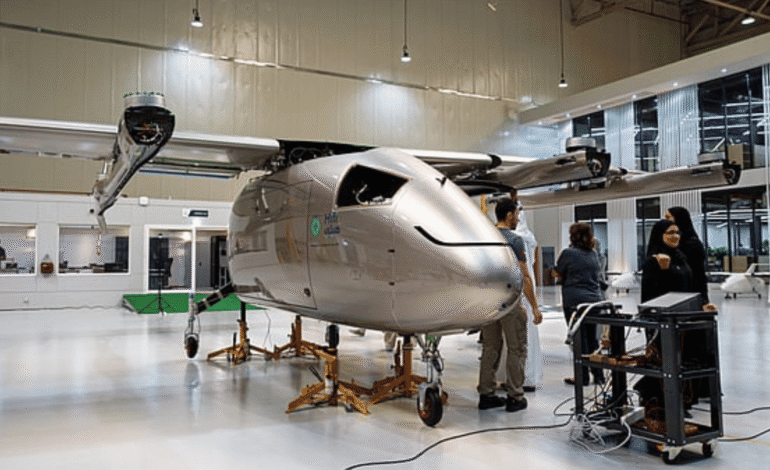Abu Dhabi Drone Firm Lodd to Start Cargo Deliveries in 2026

Abu Dhabi is preparing for a new era in logistics. Lodd Autonomous, a local drone company and AI-driven logistics provider, is ready to launch drone-based cargo delivery services by late 2026. This exciting step will make the UAE one of the first countries to use large drones for commercial cargo transport.
The company’s flagship drone, named Hili, is designed to carry up to 250 kilograms over 300 kilometers at a speed of 180 kmph. It promises to cut delivery costs significantly and make logistics faster and more efficient.
In an interview, Rashid Matar Al Manai, CEO of Lodd Autonomous, confirmed that test flights will start in November 2025. Full trials are expected by mid-2026, followed by experimental deliveries in the second half of the year. By Q3 or Q4 of 2026, Lodd plans to begin its first revenue-making commercial operations.
Building the UAE’s First Civilian Cargo Drone
Hili is not just another drone it is the first civilian aircraft of this scale built in the UAE. This shows the country’s growing strength in aviation and innovation.
With a payload capacity of 250 kilograms, Hili can carry a wide range of goods. From medical supplies and consumer products to industrial equipment, it can handle critical deliveries quickly.
Its 300-kilometer range allows it to fly between major cities, such as Abu Dhabi and Dubai, without refueling. This makes it ideal for intercity logistics and last-mile delivery challenges.
Working With Aviation Authorities
The UAE’s General Civil Aviation Authority (GCAA) is playing a key role in this project. It is working closely with drone firms to build rules, safety systems, and air routes that allow drones to fly safely in commercial spaces.
Lodd is already in talks with the GCAA to secure all required approvals. These steps are vital to ensure the drones can operate in shared airspace alongside traditional aircraft.
This collaboration reflects the UAE’s strong vision for the logistics sector. By 2030, the country aims to increase the industry’s contribution to Dh200 billion, and drones will be part of that growth.
How Drone Deliveries Will Cut Costs
Traditional cargo transport whether by road or small planes comes with high costs. Fuel, manpower, and time all add to the price of deliveries.
Drones like Hili promise a cheaper, faster, and greener alternative. Using autonomous electric UAVs will reduce fuel dependency, cut delivery times, and lower the carbon footprint of logistics.
For businesses in e-commerce, manufacturing, and healthcare, this can mean big savings and more reliable supply chains. For consumers, it could translate to cheaper delivery costs and faster service.
Abu Dhabi and Dubai as Drone Hubs
Both Abu Dhabi and Dubai are set to benefit from drone deliveries. Abu Dhabi provides the industrial ecosystem and research facilities needed to build and test these drones. Dubai, with its busy trade routes and global e-commerce market, will serve as a major hub for UAV-based logistics.
By 2026, when Dubai also expects to see flying taxis begin piloted services, the UAE will showcase aerial mobility for both people and goods. This combined system of passenger and cargo drones will make the UAE one of the world’s most advanced aviation ecosystems.
Creating a Strong Innovation Ecosystem
The success of Lodd is a direct result of the UAE’s long-term investment in innovation. The government has focused on building factories, training centers, and infrastructure to support new industries.
This approach attracts global talent while empowering local engineers. It ensures that breakthroughs like the Hili drone are not one-off projects but part of a steady push toward high-tech leadership.
Al Manai explained that Lodd’s story shows how the UAE combines skilled people, advanced infrastructure, and supportive policies to build real-world solutions.
Beyond the UAE: Global Impact of Cargo Drones
While Lodd’s first focus will be the UAE, the technology has global applications. Cargo drones can help in countries with poor road networks by delivering medical aid, food, and essential supplies.
They can also help international logistics firms redesign delivery routes, making supply chains faster, more efficient, and more eco-friendly.
With rising demand for green logistics, the UAE’s success with drones could set a model for many other nations.
What’s Next for Lodd Autonomous The roadmap is clear:
November 2025 – Test flights begin.
Mid-2026 – Full UAV trials complete.
Q3/Q4 2026 – Start of experimental and commercial drone delivery services.
The first phase will likely focus on the UAE, linking major cities and industrial hubs. Over time, Lodd could expand services regionally and globally, positioning Abu Dhabi as a global drone logistics leader.
The UAE Leads the Drone Revolution
The launch of cargo drone services by Lodd Autonomous is more than a business milestone. It is proof that the UAE is shaping the future of logistics.
From Hili’s impressive capabilities to government support and global ambitions, this project shows how the UAE is building a sustainable, cost-effective, and innovative logistics ecosystem.
As 2026 approaches, the skies of Abu Dhabi and Dubai may soon become the gateway to a drone-powered world of cargo transport.







